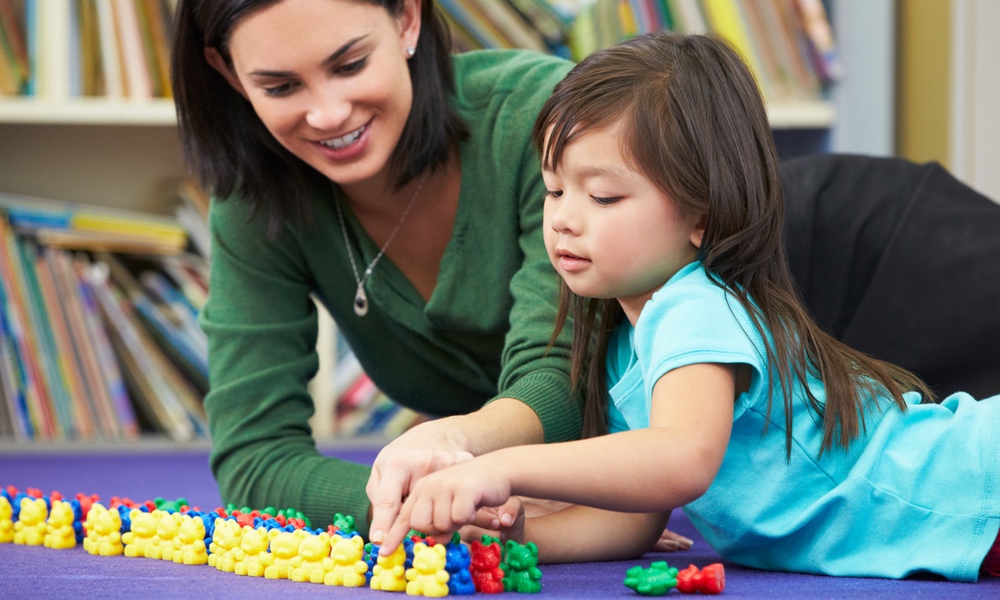Some parents may shy away from working on math with their youngsters, perhaps thinking they don't have the skills, but integrating a little arithmetic into the day may have an unexpected benefit — it can boost language skills. And even more surprisingly, it seems to work even better than literacy-based lessons, according to a new study.
The Purdue University researchers interviewed the parents of preschoolers, aged 3-5 years old, asking them about the kinds of things they worked on with their kids at home — whether they taught them about numbers, sounded out words with their kids, read to them and so on. The children's “academic” skills, both in literacy and math, were also measured in the fall and the spring of their preschool year.
It turned out that whether the parents worked on literacy-based skills didn’t much affect their children’s literacy at the end of the school year. But when they worked on skills involving numbers at home, kids' math skills and their vocabulary skills were better at the end of the year.When they worked on skills involving numbers at home, kids' math skills and their vocabulary skills were better at the end of the year.
“Exposure to basic numbers and math concepts at home were predictive, even more so than storybook reading or other literacy-rich interactions, of improving preschool children's general vocabulary,” said study author, Amy Napoli, in a statement. “And one of the reasons we think this could be is the dialogue that happens when parents are teaching their children about math and asking questions about values and comparisons, which helps these young children improve their oral language skills.”
The authors suggest that parents try to integrate simple math concepts into their everyday interactions and fun lessons with their kids at home.“…If you can count, then you can teach something to your child.”
“This focus on math typically isn't happening at home, but this shows that when parents do include math concepts it can make a difference,” said Napoli. “When working with families, there is a math-related anxiety aspect and that is probably why more parents focus on literacy than on math. But, if you can count, then you can teach something to your child.”
The study is published in the Journal of Experimental Child Psychology.





